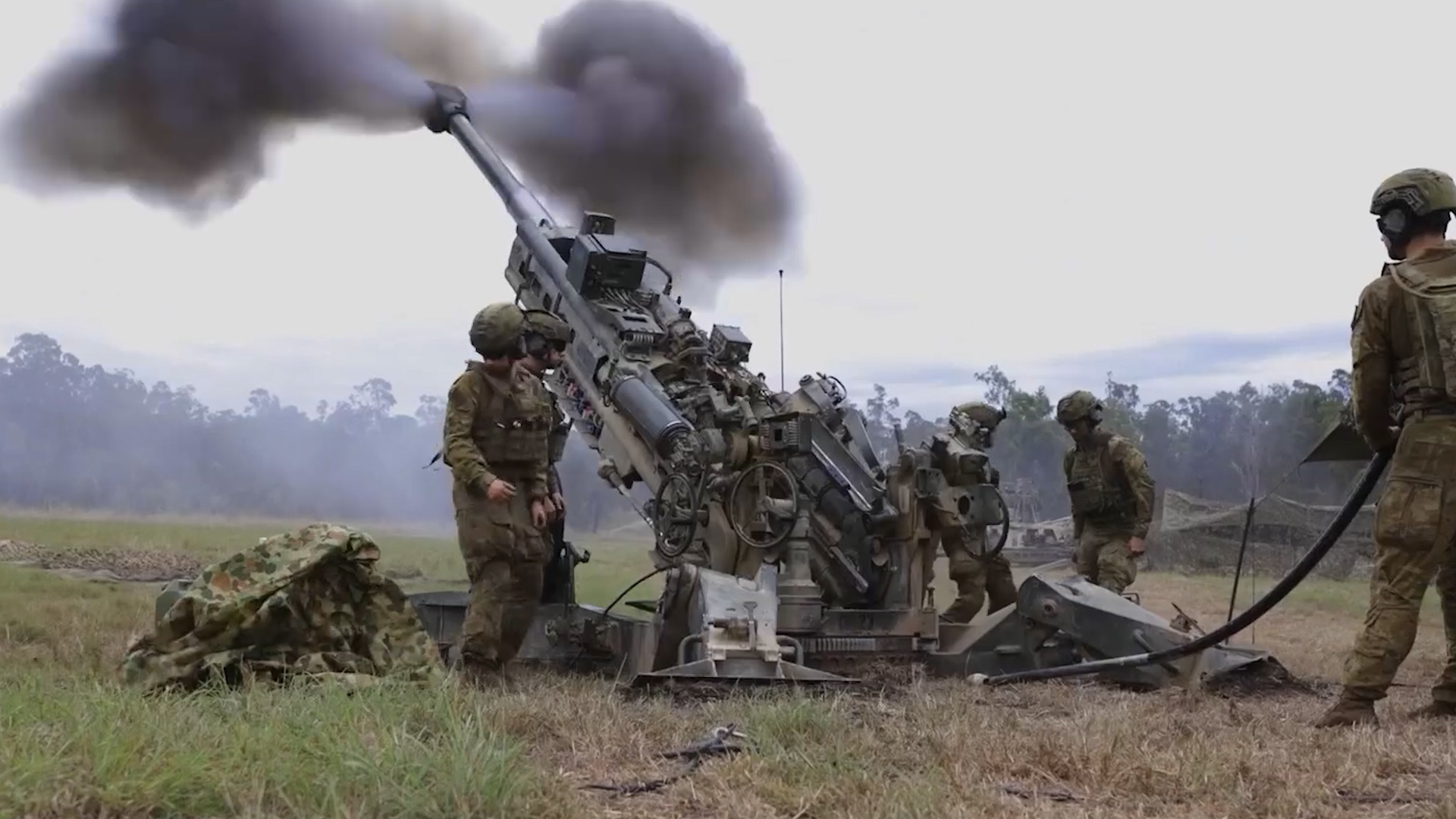
[Ryan Robertson]
WITH NEARLY 900,000 ACTIVE DUTY SOLDIERS AND MORE THAN 500,000 IN THE GUARD AND RESERVES, AMERICA’S LARGEST AND OLDEST BRANCH OF SERVICE FINDS ITSELF IN A TOUGH SPOT.
DESPITE THE FACT IT’S BEEN MORE THAN THREE YEARS SINCE THE UNITED STATES WITHDREW FROM ITS LAST WAR, THE ARMY, MUCH LIKE THE OTHER BRANCHES OF SERVICE, IS IN NEED OF NEW RECRUITS AND MODERNIZATION.
ALL WHILE KEEPING AN EYE ON EVER-CHANGING GLOBAL THREATS.
IN THE OPENING HOURS OF THIS YEAR’S AUSA GATHERING, ARMY LEADERS SAT DOWN TO TALK ABOUT A WIDE RANGE OF ISSUES FACING ARMY BRASS AND SOLDIERS IN THE FIELD.
THE SECRETARY OF THE ARMY, CHRISTINE WORMUTH LED OFF WITH SOME GOOD NEWS FOR SOLDIERS THAT FIND THEMSELVES DEPLOYED FAR FROM HOME. WORMUTH SAYS THIS NEW OPERATIONAL DEPLOYMENT PAY WILL PUT AN ADDITIONAL $240 PER MONTH IN THE POCKETS OF TROOPS DEPLOYED FOR MORE THAN 60 DAYS.
Christine Wormuth, Sec. of the Army
“And that is both to recognize the hardship of being away from families, but also the rigors of deployment, and that is something that will be officially implementing retroactively to October 1 of this year.”
Ryan Robertson
OF COURSE, ONE OF THE BIGGEST HURDLES FACING ANY BRANCH OF SERVICE IS THE BUDGET. WHILE THE ARMY’S HAS REMAINED RELATIVELY FLAT OVER THE PAST FEW YEARS, THE EXPECTATIONS PLACED ON SOLDIERS AND LEADERSHIP HAVE NOT. IT’S A SITUATION THE CHIEF OF STAFF SYAS REQUIRES SOME VERY HARD CHOICES AND A WILLINGNESS TO FIND NEW WAYS OF DOING THINGS.
Gen Randy George, Army Chief of Staff
“I can give you a lot of examples where previously we were, we were buying equipment, vehicles, radios, extra stuff that now can be done on an app. And that’s a lot that’s a lot cheaper. And so I think it’s a combination of all those things that we’re going to have to, you know, that we’re going to have to take a look at as we move forward.”
Ryan Robertson
THEN THERE’S RECRUITING AND RETENTION. WITH A STATED GOAL OF FINDING 61,000 NEW SOLDIERS IN 2025, THE ARMY IS JUST AS INTERESTED IN KEEPING THE HIGHLY SKILLED, HIGHLY TRAINED TROOPS ALREADY IN THEIR RANKS. ESPECIALLY AS THE NATURE OF COMBAT CONTINUES TO EVOLVE.
SMA Michael Weimer, Sergeant Major of the Army
“I think we have to have some concerns. I mean, it’s a very competitive market out there. We see it with recruiting, and we see it with retention, but we’ve got a lot of capability to keep those soldiers in. First is purpose. They want to do their jobs. We see that. We’re seeing that with transforming contact brigades right now. We’re seeing soldiers who are getting to do things they hadn’t had an opportunity to do before we talked about it. Now they’re doing it. Matter of fact, we’re hearing from all the other brigades. Hey, when are we going to get to do that? So now we’re trying to figure out how, how we can do this faster, with that sense of urgency I referenced.”
Ryan Robertson
WITH AUSA GETTING UNDERWAY SHORTLY AFTER THE PRESIDENT GAVE THE GO-AHEAD FOR THE ARMY TO SEND A TERMINAL HIGH ALTITUDE AREA DEFENSE BATTERY TO ISRAEL, ALONG WITH THE TROOPS NEEDED TO OPERATE IT, THE SUBJECT OF AIR DEFENSE, AND THE ABILTY TO WORK WITH ALLIES WAS ALSO A HOT TOPIC.
Gen Randy George, Army Chief of Staff
“I think for all of our air defense systems, anywhere we’re going to go in the world, we are going to be operating as a joint team. So that’s to your point. That’s exactly where we need to go with all of our system, and a big reason why we’re really focused on the network, and a big reason why we’re focused on IBCs and all of these aspects. So I do think, I do know that that will be a great increase in capability when it’s sent over there, and to help tie that whole picture together,”
Ryan Robertson
ACCORDING TO AN APRIL REPORT BY THE CONGRESSIONAL RESEARCH SERVICE, THE ARMY HAS SEVEN THAAD BATTERIES. GENERALLY EACH CONSISTS OF SIX TRUCK-MOUNTED LAUNCHERS, 48 INTERCEPTORS, RADIO AND RADAR EQUIPMENT AND REQUIRES 95 SOLDIERS TO OPERATE.











